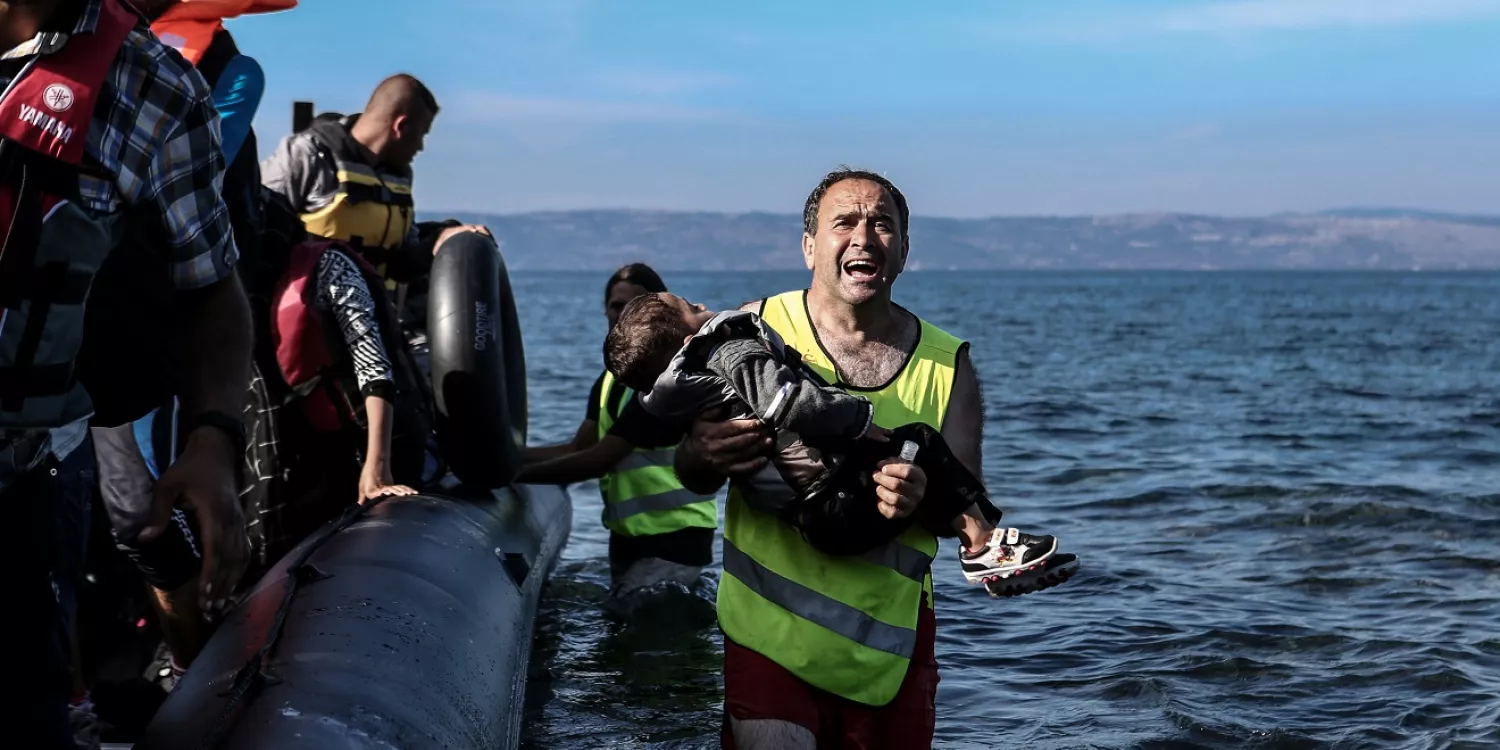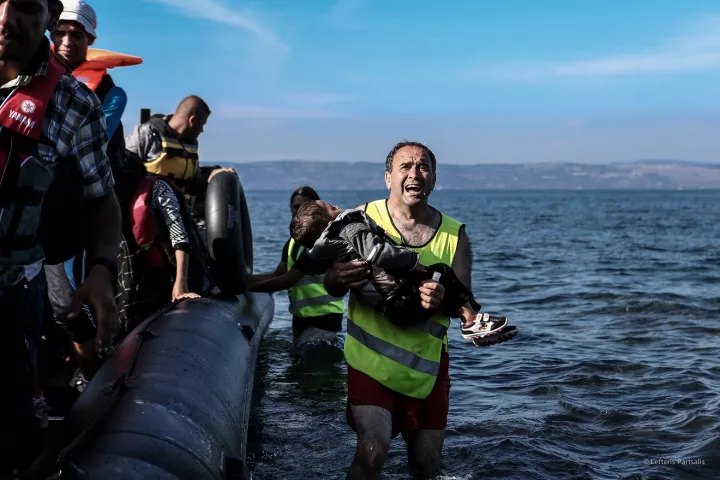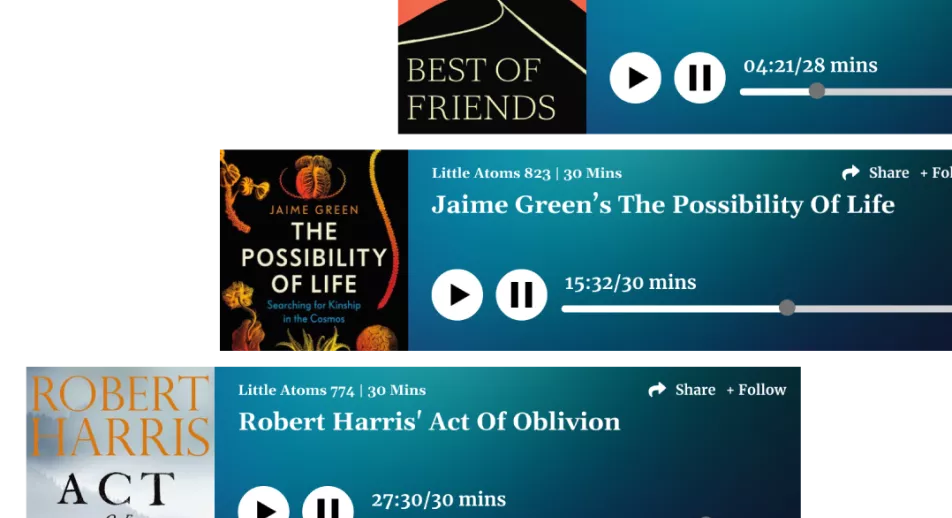The picture that defines 2015

Ghias Aljundi fled Syria after four years of imprisonment and torture at the hands of the Assad regime. In 2015, he returned to the Mediterranean to help the thousands of refugees from his homeland arriving on the beaches of Lesbos. In October, photographer Lefteris Partsalis captured the moment when Ghias called for help for a Syrian boy he feared dead, in an image that sums up the horror and compassion that have defined 2015
 'It was impossible for me to see without wanting to help'
'It was impossible for me to see without wanting to help'
In 1998 I was forced to leave Syria after being persecuted for demanding human rights in a country ruled completely by 17 different secret services apparatus. I, like many other human rights activists and journalists, was tortured and jailed.I spent four years in Assad’s jail without charge or trial. Some spent up to 15 years imprisoned without trial. Some who I met had spent 10 years inside for refusing to become informants for the secret services.
This kind of injustice led to the current situation in Syria, kept “stable” by force and fear inflicted by Hafez Assad then and now his son Bashar.
I did not imagine during all my years in exile that I would find myself on the beaches of Lesbos witnessing a worse Syrian tragedy than ever before.
The country is coming to an end. Syrians are driven by despair and fear into terrifying journeys on the boats crossing the Aegean Sea.
It was impossible for me to see without wanting to help.
I arrived on Lesbos in October 2015, aiming to stay for a week. I ended up staying for three weeks, spending most of my time in the water, welcoming boats and unloading packed dinghies. After a tiring and nervous journey, refugees mostly need to be welcomed and reassured that they will not be returned to Turkey by the Greek authorities.
Zaina looked me in the eye and said, 'You’re my uncle, aren’t you?' She just wanted to feel safe
I saw children coming out of boats shaking and crying. I saw little babies as young as 12 days old coming out of boats after midnight, wet and shivering. I was lucky to be there to be able to speak to them in their own language and make them feel safe.
We gave practical help such as looking after looking after little children, changing their clothes and nappies. I remember a little girl, Zaina, who I took her out of the boat. She was terrified and clasped her arms around my neck. Zaina looked me in the eye and said, “You’re my uncle, aren’t you?” She just wanted to feel safe.
One of the most painful moments took place in mid October. A boat arrived to the shore with 56 people on it, petrified as usual. A crying father handed me his son, but he could not look at me. He wanted to tell me something but he could not because he was crying so hard.
I took the child. He was not moving. I shook him and tried to talk to him, but he didn’t respond. I felt then that the boy was dead. I had to gather my strength and walked towards the beach while calling for the medics – the moment you see in the picture.
Medical volunteers rushed towards me. After their intervention, he began to respond. He had passed out rather passed away. I went back to the father and hugged and him.
I felt then that the boy was dead
The vast majority of the Syrian refugees I spoke to on the beaches of Lesbos were escaping the war – whether the bombing of the Syrian regime warplanes or the brutal medieval ISIS. We hardly witnessed any refugees who just came to Europe for the sake of being here. I asked one woman about her journey with her son, eight months old, on a night boat. She told me: “In Syria, we don’t know when we might die. The regime sends its planes to bomb us, and now the Russian planes are doing the same. We thought at least in the sea we might survive.”
The Greeks are, in general, welcoming and there is clear empathy towards the refugees. However, there have been protests by the right wing group Golden Dawn in front of the camps. We also met individuals who were frustrated by the lack of tourists and also by the amount of rubbish on the beaches of the island. Refugees are not allowed to use any services such as hotels or taxis. Even though this would support the economy of the island, the police would arrest any taxi drivers who give lifts to refugees before they are registered. This simply makes refugees’ lives more difficult and also deprives the locals the possibility of earning some money.
The regime sends its planes to bomb us, and now the Russians are doing the same. We thought at least in the sea we might survive
Now, with the beginning of the winter and the Turkish-EU agreement on Turkey containing the number of refugees crossing to Europe – Turkey got €3 billion from the EU to stop the crossing – the number boats is getting smaller. The agreement set the Turkish police free to attack and arrest refugees who are trying to cross, and pushed the greedy smugglers to adopt new routes. Most boats now come in the night when it is more dangerous, and take longer, treacherous journeys to more obscure islands.
Despite all of these new restrictions, refugees are still risking their lives. The EU, instead of tackling the problems properly, is “bribing” Turkey and other countries to try to stop the refugees coming. This will only prolong the tragedy. As long as the west tolerates the crimes of the Assad regime and lacks a real policy to tackle ISIS, people will keep trying to seek a safe place to build a future for their children.
Europe must not close its doors. It must look for long-term solutions including stopping supporting tyrants and selling arms to dictators in the Middle East.
I have returned to Lesbos in winter. I am meeting more desperate people. But now they face a rougher sea and a greater risk.

